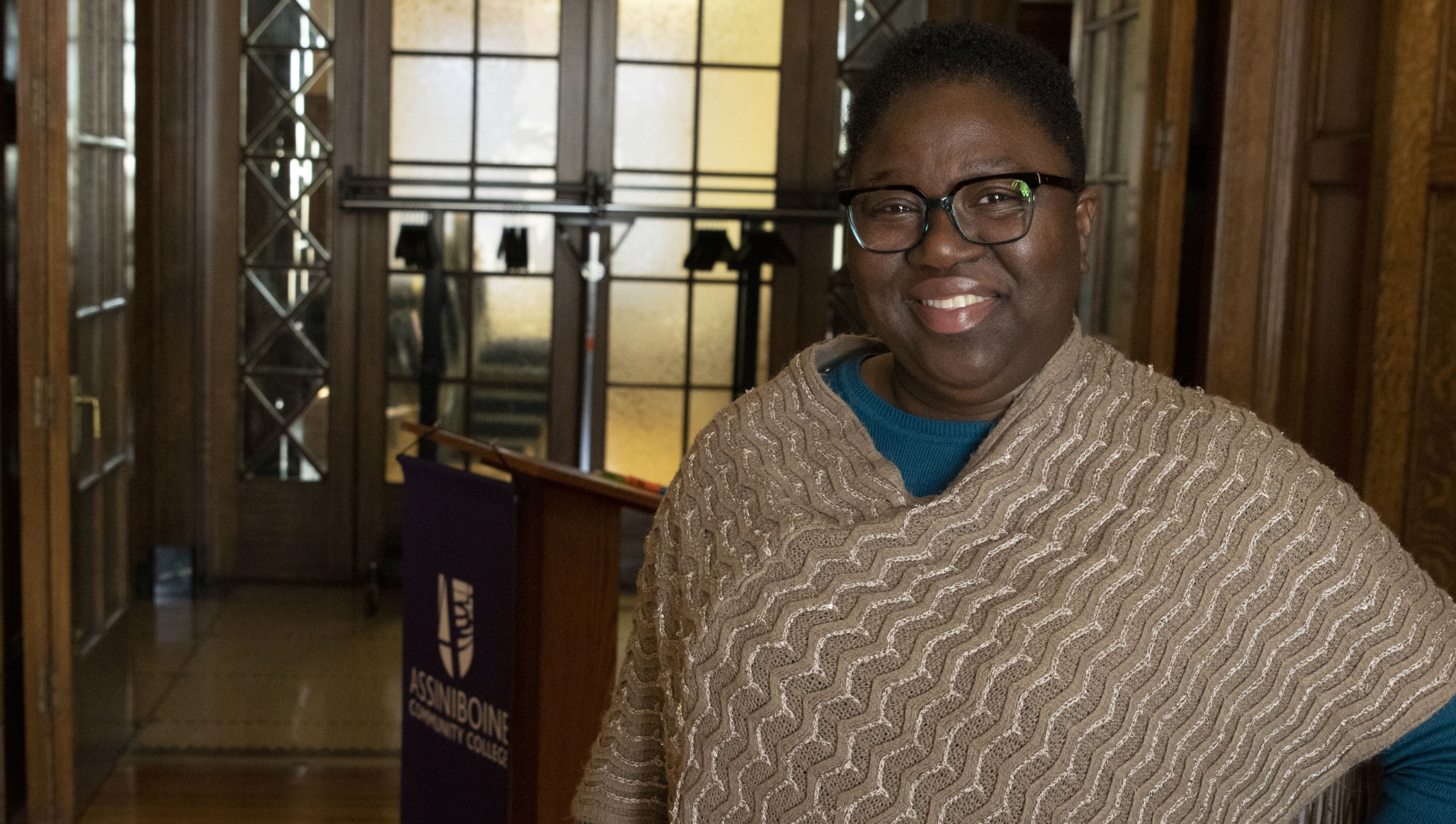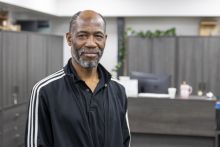Staff Spotlight: Karen O’Gilvie
February 2, 2023
My name is Karen, and I am the Academic Chair for MICA/Field to Fork in the Russ Edwards School of Agriculture & Environment. I was born and raised in Jamaica, and immigrated to Canada 10 years ago with my husband and our young family. Through a partnership between the Canadian and Jamaican governments to bring skilled workers to Canada, we landed in Thompson, Manitoba as my husband, a Red Seal chef, accepted a position through the partnership. It was a huge shift adjusting to the vastly different climate in Thompson, but we couldn’t have received a warmer welcome from the people in the community.
I have been an educator for my entire career. I started in Food Service Management and worked my way through various roles in the Culinary Arts field. The hours weren’t conducive to having a young family and spending time together, so I decided to broaden my scope of knowledge through education. My love for culinary arts and education came together as I completed a certificate in General Catering, then went on to get my Bachelor’s Degree in Education and Food Service Management, a match made in heaven. My first teaching job was in Culinary Arts, Baking and Hotel and Tourism Management at the most prestigious Trades Institute in Jamaica, the NCTVET Institute. While in Jamaica, I wrote curriculums, developed programs, and taught culinary arts in high school. My husband and I owned and managed a catering business while juggling school and family.
Upon arriving in Canada, I challenged the Red Seal exam, received my teaching license in Manitoba and Ontario, and graduated from the University of Manitoba with a Post-Baccalaureate Diploma in Education. I am currently pursuing a Masters Degree in Educational Administration at Brandon University. In Thompson, I taught Junior High and later moved into a Principalship role.
Being an educator in a Northern community where the curriculum was Indigenized helped enhance student learning experiences. Jamaica was also colonized, and that similarity really helped me to be able to relate to the students. The school district focuses on highlighting the Truth and Reconciliation journey. Being able to learn and experience aspects of the Indigenous culture has been a wonderful experience.
During Black History Month in my first few years in Thompson, I recognized there hadn’t been much planned for events. I observed, and through conversation, I learned that it wasn’t so much that teachers didn’t want to speak about Black History Month but that they didn’t feel equipped or qualified to teach on the subject and answer the hard questions regarding the atrocities of our past. I am a positive person, and while there is much darkness in the history of black people, there is also a lot of good. It’s all about balance, and I am always teaching that while there were, and continue to be, inequities, there have been major discoveries, leaders who have forced change, and scientific breakthroughs made by some incredible black people. Those are the stories we need to focus on. It is important to acknowledge the past and speak your truth, but while doing that, also look to the future because that’s where we can make positive change.
Being part of the change process, led me to partner with teachers to co-teach on Black History. I had the privilege of speaking to our students from the lens of a Black Canadian. It is imperative that we recognize that the world is big and diverse. Change and acceptance happens when we have an opportunity to learn and see things with different lenses. When people can look beyond ethnicity and see you!
When the Black Lives Matter movement started, I had an opportunity to speak at our local event in Thompson, and though unplanned, I seized the chance to share. When I looked out at that crowd, I saw a diverse group of many skin colours and ethnicities standing in support of the matter at hand. What started as a skin colour issue became a human rights issue that truly affects everyone, and it showed me that you could find allies in all groups wherever you go. History has shown this has always been the case.
Being Jamaican Canadian is a unique experience. I have the ability to be still authentic Jamaican and authentic Canadian. I do not have to choose. Our Jamaican Patois dialect is very important to me, and I’m doing my best to keep my culture and speak my language, especially for my kids, who left Jamaica very young.
It is a welcoming place to integrate into wider Canadian cultures, and I am always noticing that while we’re not all from the same place, we’re all human and relate in some way. Conversation with the people of Canada has given me the opportunity to widen my scope, learn, and also educate. I also find many similarities between the Canadian and Jamaican cultures. For example, a part of Jamaica’s National dish is salted cod. Jamaica started getting their codfish from Newfoundland! We traded the fish for rum, and the fish was packed in salt for transportation.




